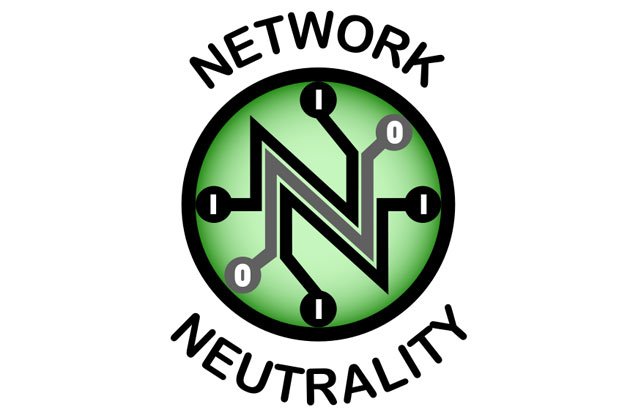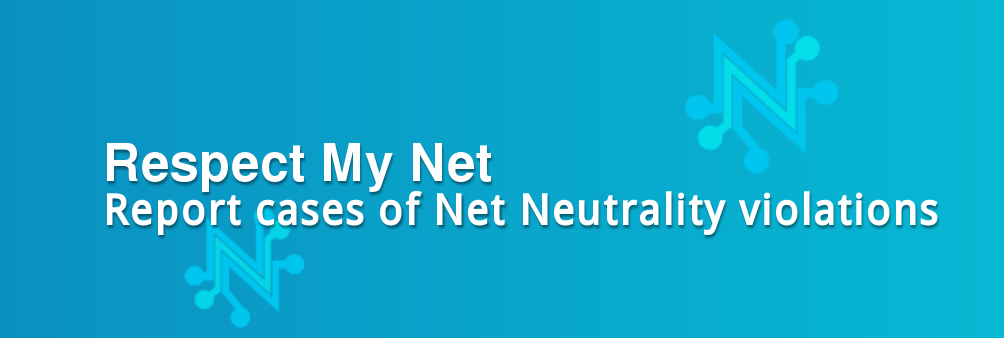Paris, 30 September 2016 — Net Neutrality is one of central challenge in the application of fundamental rights in the digital space. Too often it has been only considered as a technical or commercial issue, but it has serious impact on the real exercise of right to freedom of speech, right to information and on how the society build and think of itself; but also has important impacts on industrial and commercial issues. La Quadrature du Net has followed this issue since its start in the European debate circa 2009 by trying to defend a definition and wording in EU law of a strict Net Neutrality, protecting users and guaranteeing opportunities of development in a sane digital environment. As the BEREC guidelines for the Telecom Regulation adopted in October 2015 have been published, it is time to come back on the few years of campaign and to present the next fights and challenges for fundamental rights.
La Quadrature du Net has defended, since 2009 and the first announces of EU works on Net Neutrality, an approach based on the defence of fundamental rights: to secure Net Neutrality, it is to defend the access of all to the Internet network, it is to allow to receive and send information with the same condition for all, it is to guarantee technical condition to a free and fair exercise of freedom of speech and information.
It was not self-evident: as soon as the subject was within the speeches of Telecom operators and big digital companies, everything was made to consider Net Neutrality only from the perspective of financing Internet traffic and not as a major issue for the balance of the network that determines the quality of access and circulation of the information and services for the users as a whole.
To tell the whole story of the fight for Net Neutrality would be as tedious as revealing of the EU and national decision-making processes, the weight of lobbying, the strength of industries but also the assets of activists and citizens who committed themselves, on the long run, for the defence of the funding principles of the Internet. For La Quadrature du Net, it means skill improvements on technological, legal and institutional fields for staff, interns, members of the board and volunteers who committed themselves for more than 6 years in this battle. This meant also getting experience of EU institutions, the strength of conviction of a handful of committed defenders of liberties, the bet of citizen participation in the legislative process, the development of original campaigning tools and adapted to La Quadrature’s actions, the creation and defence of a clear and uncompromising discourse for all users, and the establishment of strong bonds and coalition with other European or international organisations also aware of the stakes of Net Neutrality for fundamental rights.
Over the years, Net Neutrality’s case fluctuated between hope and disappointment. In 2009, after amendment tabled by the US operator, AT&T, aiming to legalise discriminatory traffic management practices, La Quadrature du Net was the first EU NGO to oppose it. Regardless of a real lack of effort to information of elected representatives and citizens on this complex subject, we couldn’t compel the Parliament and the Member States to write in the Telecom Package under negotiations, a disposition protecting this principle. Nonetheless, the European Commission committed to study the subject and intervene if needed after the legislative process (see annex 2 of the press release of November 2009 greeting the adoption of the Telecom Package).

It was followed by 4 years of indecision. While in France, the Arcep and some MPs were teaching themselves on the subject through workshops, auditions and reports, the European Commission —Neelie Kroes in particular— in charge of the Digital Agenda let it wash over her. In 2011, facing the refusal of the EU authorities to consider the importance of the issue, La Quadrature du Net was at the origin of RespectMyNet, a platform allowing EU Internet users to document Net Neutrality infringements.
No matter parliamentary reports calling for a legislation on this matter, Neelie Kroes opposed it. Worst, between 2011 and 2013, she kept being closer and closer to the positions defended by large EU Telecom operators, those who started a new cycle of concentration in the sector. In this context, Neelie Kroes surprised civil society by announcing during the summer 2013, her project for a telecommunications regulation, which was presented as a tool to defend Net Neutrality and was very clearly inspired by the proposals of the big Telcos. For three years, a group of large telecom industries and universities were “explaining” —through the financing of the European Union— that the only way possible was to prioritise Internet traffic in order to finance the modernisation of the network, obviously ignoring the arguments of the people advocating for Net Neutrality.
The balance of Neelie Kroes’ project was:
- Prioritisation of the traffic to allow Telcos to conclude agreements with large content providers, social networks, etc. (Google, Facebook…) in order to prioritise those content —discriminating all small content providers, SME, individuals, civil organisations who wouldn’t have the possibility or would refuse to pay.
- Creation of status for specialised services allowing a prioritised traffic whereas equivalent services —but not paying or not enough— would be de facto more difficult to access.
- Implementation offers of zero rating and other pricing systems on the volume and commercial agreements, prioritising content providers.
Afterwards, the European Parliament studied the text. It started disastrously by choosing Pilar del Castillo Vera (EPP – ES) as a rapporteur, who followed the path taken by the European Commission and Telcos.
In November 2013, the sad picture of Net Neutrality lead few civil organisations such as La Quadrature du Net to organise themselves around SaveTheInternet.eu. After months of difficult negotiations, the European Parliament voted in extremis, on 3rd April 2014, a text which was clearly in favour of Net Neutrality. This was a great but fragile victory for the SaveTheInternet coalition and the few MEPs who seek to defend rights and freedom from the beginning.
Fragile because the Council of the European Union who had to give its position on the text and was less open to the voice of the people than to the power of large Telco companies with whom Member States have incestuous relationships. The pressure had to be maintained for over a year and half on the European Parliament to obtain in October 2015 a vote on a ambiguous text letting a large leeway for interpretation for the BEREC in charge of writing guidelines for the implementation of the Regulation in the nine next months.
After a consultation who collected over 500 000 answers from individuals, NGOs and Telco professionals, the BEREC published and publicly presented on the 30 August 2016 its guidelines, stating the principles chosen to coordinate the implementation of an open Internet. The BEREC played its role by remaining closed to Telco industries and by framing especially few practices who have been underlined by the SaveTheInternet.eu coalition, such as the specialised services and traffic management measures. Moreover, if the zero rating is not forbidden, the interpretation of the guidelines should not allow to implement those kind of practices.
A few important limits related to operators’ commercial offers are particularly noteworthy, yet for some likely to drastically limit freedom of access to information and freedom of speech.These offers remain in a grey zone and will have to be evaluated on a case-by-case basis by the National Regulatory Authorities (NRAs, the ARCEP in France), until regulators coordinate with each other and develop a form of jurisprudence over their inspections.
Also, in our common answer with FDN Federation to the consultation, we have raised few points unfortunately not taken into account by the BEREC:
- The guidelines (paragraph 16) authorise to supply one IP address only (IPV4 or IPV6). But as IPV4 addresses are now scarce and lots of ISPs are postponing the implementation of IPV6 without providing an IPV4 equivalent, like in most of mobile Internet offers. Without a quick deployment of IPV6, the users without a public IP (even fix) will be more and more restrained in the possibility to offer content and applications. Thus the infringements of Net Neutrality made by mobile ISPs could spread if National Regulatory Agencies do not stop those practices.
- At the paragraph 50 (formerly 471The numbering of the paragraph was modified between the version published for consultation and the final version), it is written that all traffic should be treated equally. Or a bad interconnection, for example with a competing service to the one of the operator could lead to an access discrimination to some contents, as it was the case in France with Youtube videos being discriminated by Free or Orange.
That being said, the result is clearly in favour of Internet user’s rights and as soon as it was published this has been denounced by the Telecom industries who considers it as a terrible constraint. In that sense, the BEREC’s guidelines are a victory for the Net Neutrality defenders. The principle of the user having control over his/her communications and the role of the technical intermediary played by the operator are —more or less— entrenched in law.
After more than seven years spent trying to put Net Neutrality in the European legislation, La Quadrature du Net is released and realises that the worst threats have been countered. And beside that the worst blocking or slowdown practices are declining, while they were commonly used a few years ago.
Nonetheless, we must stay alert during the concrete implementation of the Regulation and focus on European Regulators’ future activities. The European Commission has just announced a codification of the European telecommunication law that may challenge the few legislative progress of the last years. The Telecom operators, currently developing convergence strategies with big media groups, are very influencing political stakeholders and they will keep fighting to reinforce their control over networks and digital economy. More than ever, European citizens’ implication in controlling the efficiency of the adopted measures is need on a daily basis and thus make the regulators understand and feel that they have behind them careful users who care about the principle of a free, open and neutral Internet. Tools, such as RespectMyNet.eu which allows documenting Net Neutrality infringements, will be maintained and further developed in order to enable citizens to play their own role in the protection of Net Neutrality.

References

